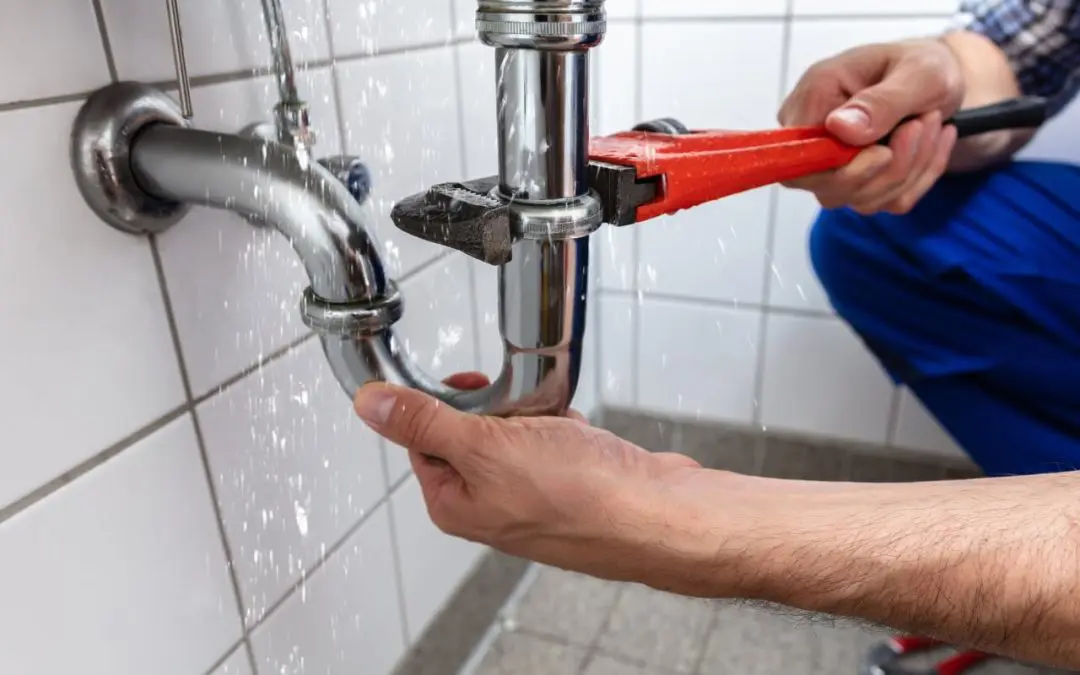Regular plumbing maintenance is essential for keeping your home’s water systems running smoothly and preventing costly repairs. While many homeowners may only think about plumbing when there’s an issue, proactive maintenance can save you from unexpected headaches. Here’s a guide to some of the most important plumbing maintenance tasks you should be doing to protect your home.
Inspect for Leaks Regularly During Plumbing Maintenance
One of the simplest ways to maintain your plumbing system is by checking for leaks. Leaks can occur in faucets, toilets, pipes under sinks, or even hidden within your walls. Take the time to inspect all visible plumbing connections for any signs of moisture, rust, or corrosion. Even a slow drip can waste gallons of water over time, increasing your utility bill and potentially leading to water damage.
For hidden leaks, pay attention to any unexplained increases in your water bill or musty smells, as these could indicate a problem. Early detection allows you to address the issue before it becomes a bigger concern.
Clean Your Drains
Clogged drains are a common problem, but they are also preventable with regular care. Homeowners should routinely clean their drains to remove any debris, such as hair, soap scum, or food particles that can accumulate over time. Using a drain cleaner, either a store-bought product or a natural solution like baking soda and vinegar, can help break down buildup and keep your pipes clear.
Avoid using chemical drain cleaners frequently, as they can be harsh on your pipes and cause damage over time. Instead, consider installing drain screens to catch debris before it enters your plumbing system.
Flush Your Water Heater
Your water heater is an essential component of your plumbing system, and it requires maintenance to run efficiently. Over time, sediment builds up inside the tank, which can affect the performance of the heater and cause energy inefficiencies. To prevent this, it’s recommended that you flush your water heater at least once a year.
Flushing your water heater removes the sediment and improves the heater’s lifespan and efficiency. Be sure to consult the manufacturer’s instructions or hire a professional if you’re unsure how to perform this task yourself.
Maintain Your Water Pressure
High water pressure may seem like a luxury, but it can actually be harmful to your plumbing system. Excessive water pressure can strain pipes and lead to leaks, especially in older homes with aging plumbing infrastructure. On the other hand, low water pressure might indicate a problem, such as a clog or pipe blockage.
To maintain optimal water pressure, use a pressure gauge to check your home’s water pressure periodically. If it’s too high, installing a pressure-reducing valve can help regulate it and prevent damage to your pipes.
Inspect Your Sump Pump During Plumbing Maintenance
If your home has a basement, your sump pump is your first line of defense against flooding. It’s crucial to inspect and test your sump pump at least once a year, especially before the rainy season. Make sure that the sump pump is in working order and that it activates when water enters the sump pit.
Check the power source and clean out any debris that may be blocking the pump. This small maintenance task can prevent major water damage in the event of a heavy storm or rising groundwater levels.
Insulate Exposed Pipes
In colder climates, freezing temperatures can cause your pipes to freeze and burst, leading to extensive water damage. To prevent this, homeowners should insulate any exposed pipes, especially those in unheated areas like basements, crawl spaces, or garages.
Foam pipe insulation is inexpensive and easy to install. By wrapping your pipes, you can protect them from freezing temperatures and reduce the risk of bursting. This maintenance task is particularly important in the winter months but should be checked annually.
Check the Toilet During Plumbing Maintenance
A running toilet may seem like a minor annoyance, but it can waste a significant amount of water over time. To ensure your toilet is working efficiently, check for any signs of a running toilet, such as the sound of water filling the tank even when it hasn’t been flushed.
The cause is often a faulty flapper or an issue with the fill valve. Replacing these parts is usually a simple fix and can save you from wasting water and incurring higher utility bills.
Keep an Eye on Your Water Meter
Your water meter is a useful tool for detecting leaks and monitoring water usage. Periodically checking your water meter can help you spot any irregularities. Turn off all water fixtures in your home, and observe the meter. If the meter is still moving, it could be a sign that there’s a hidden leak in your plumbing system.
Tracking your water meter can also help you catch sudden spikes in water usage, which could indicate a problem that needs attention.
Schedule Professional Inspections
While there’s a lot you can do to maintain your plumbing system on your own, it’s also a good idea to schedule regular professional inspections. A licensed plumber can perform a thorough check of your home’s plumbing, identify potential issues, and provide solutions before they turn into costly repairs.
Professional plumbers have specialized tools to check for blockages, inspect sewer lines, and ensure that everything is running smoothly. Annual inspections are a wise investment to maintain the health of your plumbing system.
Plumbing maintenance is a task that homeowners often overlook until there’s an issue. By staying proactive and performing regular maintenance, you can prevent major plumbing problems and extend the life of your home’s water systems. Whether it’s checking for leaks, maintaining water pressure, or flushing your water heater, these simple tasks can save you time, money, and hassle down the road. Keep your plumbing in top shape, and your home will thank you for it.
Home Inspectors of Middle Tennessee provides professional inspections to homebuyers and sellers in Nashville, TN. Contact us to schedule our services.

